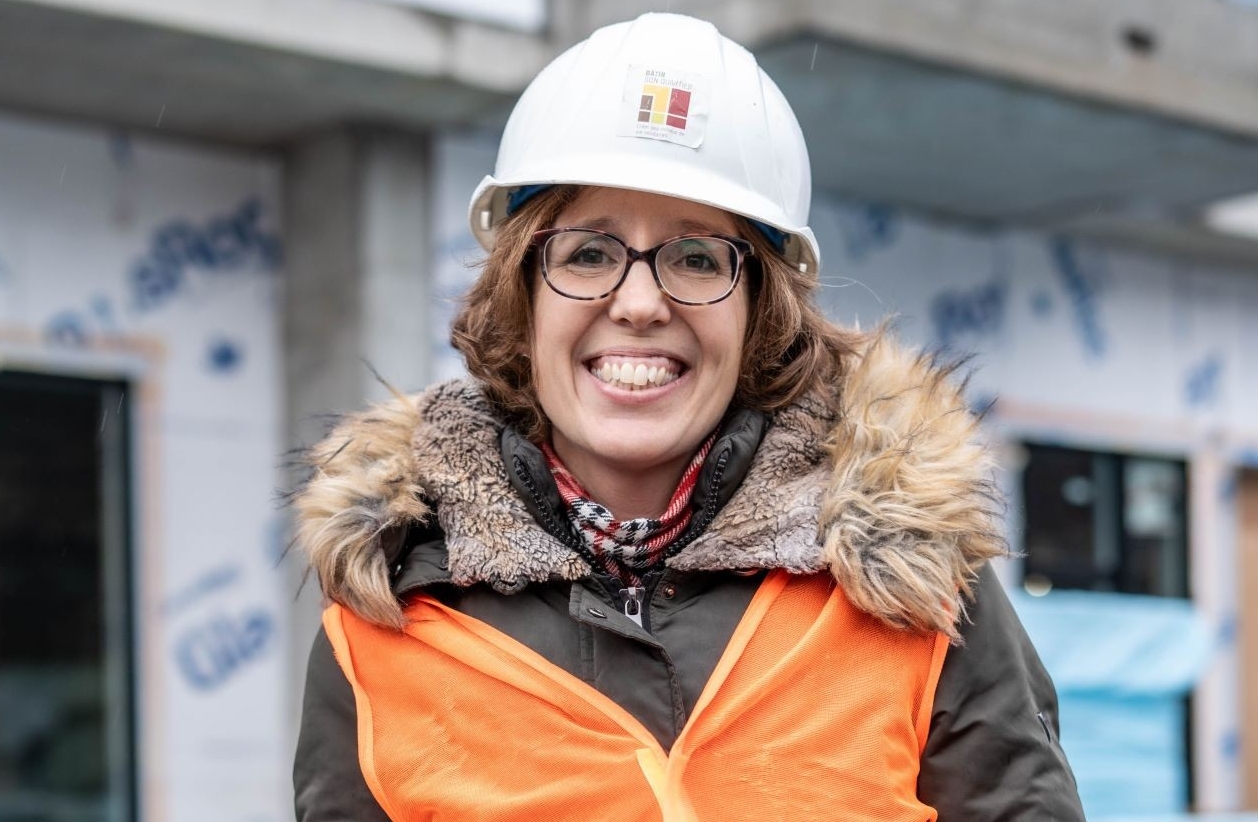Using management skills to make the world a better place
 “It’s really important for people in the non-profit sector to get hard managerial skills,” Sally Richmond, MBA 13 | Credit: Christyna Pelletier
“It’s really important for people in the non-profit sector to get hard managerial skills,” Sally Richmond, MBA 13 | Credit: Christyna Pelletier
Sally Richmond, MBA 13, always knew she wanted to be in a “helping profession.” But years of working in the non-profit sector showed her that good intentions were not enough.
“It’s really important for people in the non-profit sector to get hard managerial skills,” says Richmond, who decided to apply to Concordia’s John Molson School of Business in 2011.
Richmond completed her MBA while working full-time as executive director for Logifem, a Montreal organization that operates women’s shelters.
Logifem’s two shelters accommodate up to 28 women and 20 children. The organization also has 13 transitional housing units — seven for single women and six for single-mother families — where women can stay for up to three years to work on a social-reinsertion project.
“Most of the women we work with are in a precarious housing cycle. They might have nowhere to go after being hospitalized, or they might be couch-surfing, moving from friend to friend or staying with family members,” Richmond explains. “There could be a violent person in the household that they have to leave, and sometimes they are evicted from their apartment because of insolubility.”
The organization also provides services that help women get their lives on track. Each woman who arrives at the shelter is assigned an intervention worker who helps her find long-term housing. “It could be transitional housing, housing with support, a co-op or low-income housing,” says Richmond.
Logifem also helps women manage their mental health and their daily routine by connecting them to services in the community. After they leave the shelter, the organization supports former residents, giving access to a pantry with free food and a clothing boutique with items sold at very low prices.
“There's somebody who's kind of checking in on women after they leave to make sure things are going well.”
‘I could see there were things that weren’t working’
Richmond, who did her undergraduate degree in English literature and French at the University of Manchester, United Kingdom, began her non-profit career at 18, volunteering in India. Later, after coordinating a network for churches and Christian groups working with refugees and asylum seekers in the U.K., she landed a job in Canada as store manager for fair-trade retailer Dix Mille Villages.
These experiences prompted her to apply to the MBA program. “I could see there were things that weren’t working. I felt that if I was going to work in the non-profit sector, I wanted to be a really strong manager and understand finance and organizational development.”
Richmond learned many things at the John Molson School that made her a more effective leader at Logifem. “For starters, it was good to understand balance sheets, income statements, cash flow, what depreciation is, how it’s calculated, what is a capital asset and what’s not. It was very useful to have it all broken down.”
Lessons on strategy were also important, she says. “You learn how to approach a problem and separate it into different parts: what’s going on, where are the opportunities, threats, strengths and weaknesses. It gives you a framework to think things through.”
Richmond also appreciated a course with management professor Steve Applebaum, who specializes in organizational behaviour. “It’s so useful to think about how groups work together, how people work together.”
Learning about real estate as part of her MBA turned out to be particularly useful, Richmond says, when Logifem began looking for a building to house a new permanent housing project. Scheduled to open in September 2024 in Montreal’s St. Henri neighbourhood, it will have 35 apartments ranging from one to four bedrooms. Women will benefit from subsidized rent, set at 25 per cent of their income. The project was funded through an agreement with the federal government using money from the Programme d'habitation abordable Québec, the Rapid Housing Initiative, Novoclimat and City of Montreal.
‘We see other organizations as partners’
“A lot of the language in business is around competition. In the non-profit sector, we don’t see other organizations as competition but as partners. It requires a different kind of language, but the concepts are the same, because you are looking at where the opportunities are.”
Through her work, Richmond maintains strong connections with Concordia. Logifem’s post-shelter services started with a grant from the SHIFT Center for Social Transformation and the organization is a member of the Community Round Table, set up as part of Concordia’s Community Service Intiative. “Concordia even sends us interns and lets us use conference rooms free of charge for some staff meetings!” says Richmond.